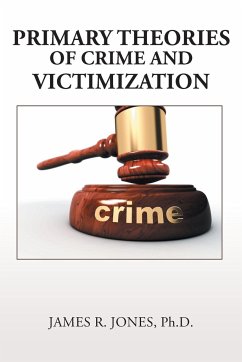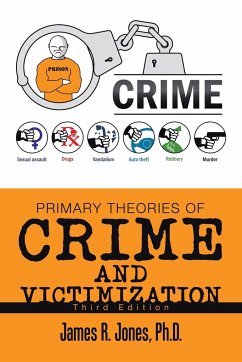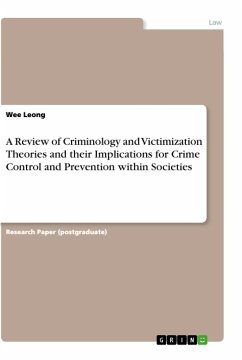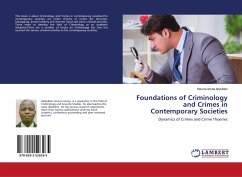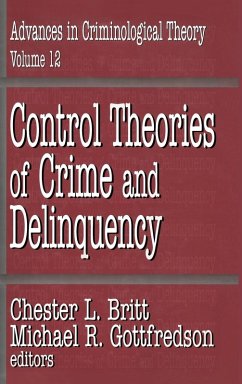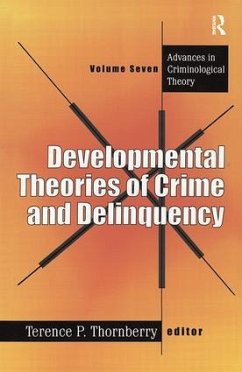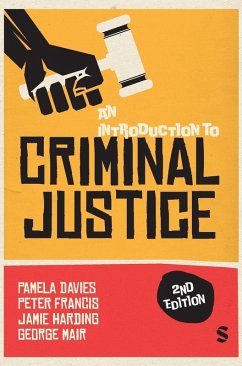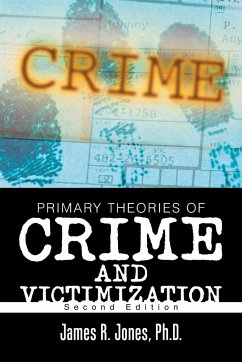
Primary Theories of Crime and Victimization
Second Edition
Versandkostenfrei!
Versandfertig in 1-2 Wochen
21,99 €
inkl. MwSt.
Weitere Ausgaben:

PAYBACK Punkte
11 °P sammeln!
This text focuses on the history of criminology, which includes the criminological time periods, persons most associated with each era, and their contentions and contributions. The earlier crime research epochs that are the concentration of the beginning of the text are the classical school of criminology, positivist criminology, sociological criminology (also known as the Chicago school), conflict criminology, and developmental criminology. It also concentrates on the ways crime is recorded in the United States and the strengths and weaknesses of each method. The focal point of the crime reco...
This text focuses on the history of criminology, which includes the criminological time periods, persons most associated with each era, and their contentions and contributions. The earlier crime research epochs that are the concentration of the beginning of the text are the classical school of criminology, positivist criminology, sociological criminology (also known as the Chicago school), conflict criminology, and developmental criminology. It also concentrates on the ways crime is recorded in the United States and the strengths and weaknesses of each method. The focal point of the crime recording section of the text is on the Uniform Crime Report (UCR), National Crime Victimization Survey (NCVS), and self-report surveys. The theories of crime and delinquency that are examined are strain theory, differential association theory, conflict theory, social bonding theory, rational choice theory, social structure theory, social disorganization theory, cultural deviance theory, differential association theory, differential reinforcement theory, labeling theory, and theories of victimization. Finally, the text concludes with chapters on causes of violent crimes, juvenile delinquency, white-collar crime, and terrorism.




